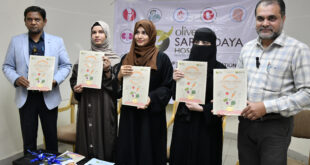Preventing Brain Stroke: The Role of Lifestyle Factors and Early Detection
Brain stroke, also known as a cerebrovascular accident (CVA), is a serious condition that occurs when the blood flow to the brain is disrupted, leading to damage and dysfunction of brain tissue. According to the World Health Organization (WHO), stroke is the second leading cause of death worldwide and a leading cause of long-term disability. Fortunately, many cases of stroke can be prevented through lifestyle modifications and early detection. Here’s how:
1. Control Blood Pressure: High blood pressure is a major risk factor for stroke, as it can damage blood vessels and increase the risk of blood clots. By monitoring blood pressure and taking steps to control it through medication, diet, and exercise, you can reduce your risk of stroke.
2. Maintain a Healthy Diet: Eating a diet rich in fruits, vegetables, whole grains, and lean proteins can help reduce the risk of stroke by promoting cardiovascular health and reducing inflammation. Limiting your intake of saturated and trans fats, salt, and sugar can also help lower the risk of stroke.
3. Exercise Regularly: Regular physical activity can help improve cardiovascular health, reduce blood pressure, and lower the risk of stroke. Aim for at least 150 minutes of moderate-intensity exercise per week, such as brisk walking, cycling, or swimming.
4. Avoid Smoking and Alcohol: Smoking and excessive alcohol consumption can increase the risk of stroke by damaging blood vessels and promoting inflammation. Quitting smoking and limiting alcohol intake can help reduce the risk of stroke.
5. Early Detection and Treatment: If you experience any symptoms of stroke, such as sudden weakness or numbness in the face, arms, or legs, difficulty speaking or understanding speech, or severe headache, seek medical attention immediately. Early detection and treatment can help minimize damage to the brain and improve outcomes.
In conclusion, preventing brain stroke involves a combination of lifestyle modifications and early detection. By controlling blood pressure, maintaining a healthy diet, exercising regularly, avoiding smoking and alcohol, and seeking prompt medical attention, you can reduce your risk of stroke and improve your overall health and wellbeing.
References:
1. World Health Organization. (2021). Stroke. Retrieved from https://www.who.int/news-room/fact-sheets/detail/stroke
2. American Heart Association. (2017). Prevention of Stroke. Retrieved from https://www.heart.org/en/health-topics/stroke/prevention-and-treatment-of-stroke/prevention-of-stroke
Check Also
Services of Shadan Vizarath Rasool Khan honoured
Khaled Shahbaaz The services of Mrs. Shadan Vizarath Rasool Khan, Secretary of the Shadan Educational …
Compassion Must Remain Central to Medical Practice: Experts
Hyderabad, January 31: Treating patients as customers would amount to a disservice to the noble …
 Gawah (The Witness) – Hyderabad India Fearless By Birth, Pristine by Choice – First National Urdu Weekly From South India – Latest News, Breaking News, Special Stories, Interviews, Islamic, World, India, National News
Gawah (The Witness) – Hyderabad India Fearless By Birth, Pristine by Choice – First National Urdu Weekly From South India – Latest News, Breaking News, Special Stories, Interviews, Islamic, World, India, National News





